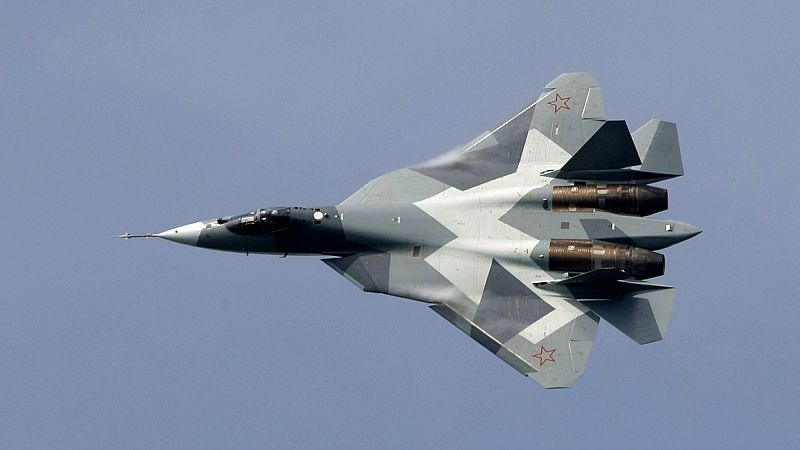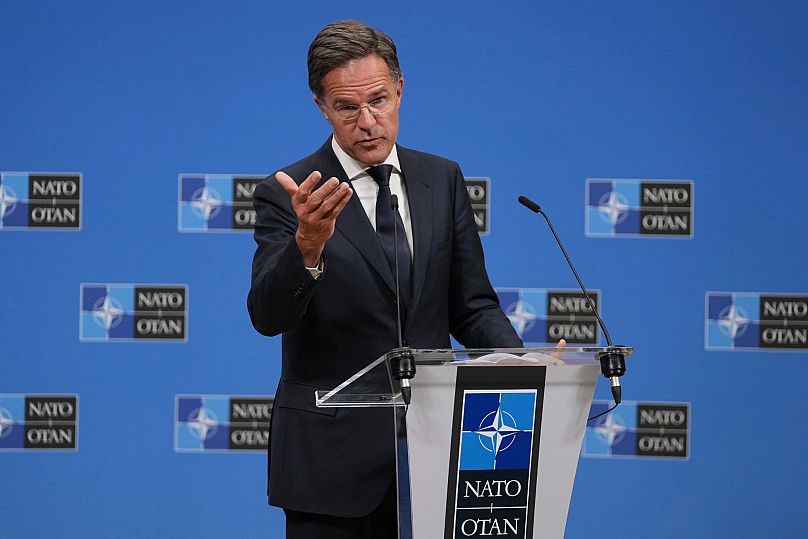NATO's article 4 triggered amid Russian airspace violation, 'it could be big trouble' Trump says

Estonia's Prime Minister Kristen Michal said on Friday evening that the government has requested NATO Article 4 consultations with the alliance's allies following an airspace violation by Russian jets.
"This morning, 3 Russian MiG-31 fighter jets entered Estonian airspace. NATO fighters responded, and the Russian planes were forced to flee," Michal wrote in a post on X.
"Such violation is totally unacceptable."
Foreign Minister Margus Tsahkna said the jets entered Estonian airspace and lingered over the Gulf of Finland for 12 minutes.
The Russian charge d’affaires was summoned and given a protest note, he added.
The jets lacked two-way radio communication with Estonian air traffic control and had no flight plans, domestic media reported.
"Russia's ever-increasing testing of borders and aggressiveness must be responded to by rapidly strengthening political and economic pressure," Tsahkna said.
"Russia has already violated Estonia's airspace four times this year, which is unacceptable in itself," Foreign Minister Margus Tsahkna told domestic outlets.
"But today's incursion, involving three fighter jets entering our airspace, is unprecedentedly brazen."
Italian F-35 fighter jets responded to incursion
The Russian MIG-31 fighters entered Estonian airspace in the area of Vaindloo Island, a small island located in the Gulf of Finland in the Baltic Sea, the Estonian military said in a separate statement.
According to this statement, the aircraft did not have flight plans and the transponders were turned off.
Currently deployed as part of the NATO Baltic Air Policing Mission, the Italian Air Force F-35 fighter jets were the first responders to the incident.
Article 4 is triggered
The North Atlantic Council, NATO’s principal political decision-making body, is due to convene early next week to discuss the incident in more detail, NATO spokesperson Allison Hart said Friday, calling the incident "reckless Russian behaviour."
Article 4, the shortest of the NATO treaty’s 14 articles, states that: “The Parties will consult together whenever, in the opinion of any of them, the territorial integrity, political independence or security of any of the Parties is threatened.”
Trump: It could be big trouble
US President Donald Trump told reporters that his aides on the reported incursion will soon brief him. “I don’t love it,” he said, adding, “I don’t like when that happens. It could be big trouble, but I’ll let you know later.”
Russian officials did not immediately comment on the incident, which was met with swift condemnation from the EU's Foreign Policy Chief Kaja Kallas and European Commission President Ursula von der Leyen.
"Today's violation of Estonia's airspace by Russian military aircraft is an extremely dangerous provocation," Kallas wrote in a post on X.
"Europe stands with Estonia in the face of Russia’s latest violation of our airspace," von der Leyen said, calling on EU member states to approve a 19th sanctions package against Moscow.
Estonia is the third NATO member country to report such an incursion over the past few weeks, following similar incidents in Poland and Romania.
'Shifting focus' as a possible motivation
Major Taavi Karotamm, spokesperson for the Estonian Defence Forces, said that the Russian planes flew parallel to the Estonian border from east to west and did not head toward the capital, Tallinn.
Karotamm said the reason for the border violation is unknown, but added that it may have been to “shift the focus of NATO and its members onto defending itself, rather than bolstering Ukrainian defence.“
'Unprecedented violation'
The incident comes just over a week after Poland said at least 20 Russian drones entered its airspace before being shot down by the military in an "unprecedented violation."
In responding to the incursion, Poland became the first NATO country to directly engage with Russian assets since the start of Moscow's full-scale invasion of Ukraine in 2022.
The event was met with widespread condemnation from Poland's European allies, who said it was evidence that Russia was testing the limits of the NATO alliance. Poland's Foreign Minister, Radosław Sikorski, said that the incursion was intentional.
NATO allies vowed to beef up security along the alliance's eastern flank following the incident, which the head of the alliance, Mark Rutte, called "crucial to counter aggression and defend every member of the Alliance."
Earlier on Friday, the head of the UK's Secret Intelligence Service said there was "no evidence" Russian President Vladimir Putin was interested in peace in Ukraine.
His comments come despite US-led efforts to broker a ceasefire between the two countries.
"Putin has sought to convince the world that Russian victory is inevitable. But he lies. He lies to the world. He lies to his people. Perhaps he even lies to himself," Moore told a news conference.
Ukraine, meanwhile, has called for the joint protection of European skies and for increased investment into its domestic weapons production to ward off Russian attacks.
Today


